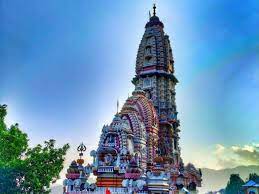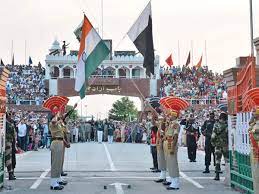IMA MARKET IN IMPHAL SYMBOLIZES WOMENs EMPOWERMENT IN MANIPUR

The Ima
Market of Imphal, located in the capital city of Manipur,
is more than just a bustling marketplace. It is a symbol of women’s resilience,
entrepreneurship, and empowerment. As the world celebrates International
Women's Day, it is fitting to shine a spotlight on this unique market, where
women have taken the lead in trade, family life, and society for generations.
The Ima Market stands as a testament to the strength, leadership, and
resourcefulness of women, echoing the global themes of gender equality and
women’s empowerment.
THE HISTORY AND STRUCTURE OF IMA MARKET
Ima Market,
often referred to as the "Mother’s Market," is one of the largest
all-women markets in the world. Its name, "Ima," means
"mother" in the Manipuri language, which is a fitting title given the
market’s deep-rooted connection with women. The market dates back to the 16th
century when it first began as an informal collection of women selling local
products in the heart of Imphal. Over time, it grew into a major center for
trade, with women from all walks of life playing a key role in its functioning.
Located in
the heart of the city, the market is divided into two sections: one for the
sale of fresh vegetables, fruits, fish, and other food items, and the other for
the sale of household goods, clothes, and traditional handicrafts. The market’s
structure, built in the form of two large rectangular blocks, provides a
sheltered environment for over 3,000 women vendors who work here every day.
This extraordinary concentration of female entrepreneurs makes Ima Market an
emblem of women's agency, self-sufficiency, and strength.
A LEGACY OF WOMEN'S LEADERSHIP
Ima Market
is not just a place where transactions take place. It is a space where women
have long exercised leadership, whether in managing their families, negotiating
with customers, or advocating for social and political causes. The market has
historically been a platform for women to come together, form solidarity, and
take collective action.
Women in
Imphal have played crucial roles in their communities, especially during times
of conflict or social unrest. For instance, the famous "Nupi Lan"
(Women’s War) of 1904 and 1939, two significant anti-colonial movements, were
largely led by women. These events were centered around the defense of the
Manipuri economy and the protection of indigenous values and resources, with
women actively participating in the protests and rallies. The market became a
space for organizing these protests, further cementing the idea that women were
not just passive figures in society but active agents of change.
Even today,
Ima Market is a thriving hub of social, cultural, and political discourse.
Women here are deeply involved in the community's decision-making processes,
and their voices have helped shape the socio-political landscape of Manipur.
WOMEN'S ECONOMIC EMPOWERMENT
One of the
most striking aspects of Ima Market is the role it plays in the economic
empowerment of women in Manipur. In a society where gender roles have
traditionally confined women to the domestic sphere, Ima Market offers them the
opportunity to assert their independence and contribute significantly to the
family income. It is estimated that over 80% of the market’s vendors are women,
ranging from young entrepreneurs to elderly women. They sell a variety of goods
such as fresh produce, traditional handicrafts, and indigenous herbs, all of
which contribute to the local economy.
The market
not only serves as a vital economic hub but also as a space where women can
gain financial independence and create opportunities for their families. By
managing their businesses and income, the women of Ima Market have been able to
break free from traditional patriarchal structures that limit women’s financial
autonomy. This independence allows them to invest in their children’s
education, healthcare, and well-being, thus contributing to the overall
development of the community.
A SOURCE OF CULTURAL IDENTITY
Ima Market
is also a key institution for preserving and promoting the rich cultural
heritage of Manipur. Women traders in the market sell an array of local
products, including traditional handwoven fabrics, shawls, and intricate
handicrafts. These products are not just commodities; they are embodiments of
the region's cultural identity and craftsmanship. Through their work, the women
of Ima Market play an essential role in ensuring that Manipuri traditions are
passed down to future generations.
The market
also fosters intergenerational connections, as many women vendors pass down
their trade secrets and skills to their daughters and granddaughters. This not
only strengthens the community but also ensures the continuity of traditional
craftsmanship and knowledge.
You may like post

HIDDEN INDIAN SITES WORTHY OF UNESCO
Exploring India’s Sites That Should Be on the UNESCO World Heritage List

WITNESS THE MAGIC OF TULIP SEASON ACROSS INDIAs SCENIC LANDSCAPES
Discover Tulip Blooms in India’s Most Beautiful Spring Destinations







